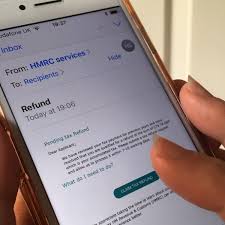Is HMRC Calls A Scam? Read This Before You Pick
In recent times, scam calls and automated messages claiming to be from HMRC (Her Majesty’s Revenue and Customs) have become a prevalent issue. These scams aim to deceive individuals into providing personal information or paying non-existent debts. In this review, we will delve into the world of HMRC scam calls and debt automated messages, and explore ways to protect yourself from falling victim to these fraudulent schemes.

Understanding HMRC Scam Calls
Scam calls impersonating HMRC often make individuals believe there is a problem with their taxes, or they owe a significant debt that must be resolved immediately. The scammers use fear tactics and a sense of urgency to pressure their targets into divulging sensitive information or making payments.
Characteristics of 07477 HMRC Scam Calls
One particular number associated with HMRC scam calls is 07477. Scammers may use this number to make outgoing calls, and it has been reported as a consistent source of fraudulent activity. However, it is important to note that scammers can use various phone numbers to carry out their schemes, and not all calls from this number are necessarily scams.
Debt Automated Messages
Alongside scam calls, automated messages related to debt are another tactic used by fraudsters. These messages claim that the recipient has an outstanding debt with HMRC and needs to pay it urgently to avoid legal consequences. These automated messages usually provide a number to call or a website to visit for payment.
How To Recognize An HMRC Scam Call?
There are certain signs to watch out for when identifying an HMRC scam call. Firstly, HMRC will never contact individuals via phone regarding outstanding payments without prior written communication. If you receive a call out of the blue, especially with threats of legal action, it is likely a scam. Additionally, HMRC will not ask for sensitive information, such as bank account details or personal identification numbers, over the phone.
Consequences Of Falling For The Scam
Falling for an HMRC scam call or debt automated message can have severe consequences. Scammers may use the personal information provided to commit identity theft, access financial accounts, or even sell the information to other criminals. Moreover, making payments to these scammers means losing money with no hope of recovering it.
Protecting Yourself from HMRC Scam Calls and Debt Messages
To protect yourself from HMRC scam calls and debt messages, it is crucial to adopt certain measures. Firstly, be cautious of unsolicited phone calls demanding immediate action or urgent payments. Hang up if you suspect a call to be a scam. Secondly, educate yourself about HMRC’s official communication channels and their procedures for contacting individuals. Finally, never share sensitive information or make payments based on a phone call alone.
Reporting HMRC Scam Calls
If you receive an HMRC scam call or an automated message related to debt, it is important to report it. HMRC has an official fraud reporting page on their website where you can provide details about the scam call or message. Additionally, inform your telephone service provider about the fraudulent activity.
Spreading Awareness To Prevent Scams
Raising awareness about HMRC scam calls and debt messages is crucial to protect others from falling victim to these fraudulent schemes. Share information with family, friends, and colleagues, educating them about the signs of a scam call and ways to protect themselves. By collectively staying informed, we can make it harder for scammers to succeed in their malicious endeavors.
Conclusion
HMRC scam calls and debt automated messages continue to pose a threat to individuals’ personal information and financial security. Just like other scam websites we have reviewed understanding the characteristics of these scams, recognizing red flags, and spreading awareness, we can protect ourselves and others from falling prey to these fraudulent schemes.
FAQs
1. What should I do if I receive an HMRC scam call?
If you receive an HMRC scam call, hang up immediately. Do not provide any personal information or make any payments. Report the incident to HMRC and your telephone service provider.
2. Can HMRC make automated calls regarding unpaid taxes or debts?
No, HMRC will not make automated calls regarding unpaid taxes or debts. They will typically send written communication before contacting individuals via phone.
3. How can I verify if an HMRC call is genuine?
To verify the authenticity of an HMRC call, hang up and independently find the official contact information for HMRC. Call them back using the official phone number or contact them through their official website.
4. What should I do if I have already fallen for an HMRC scam call?
If you have already fallen for an HMRC scam call and provided personal information or made a payment, contact your bank immediately to secure your accounts. Report the incident to HMRC and consider contacting the police to file a report.
5. Are all calls from the 07477 number scams?
No, not all calls from the 07477 number are scams. However, it is important to exercise caution and verify the legitimacy of the call before sharing any personal information or making payments.
